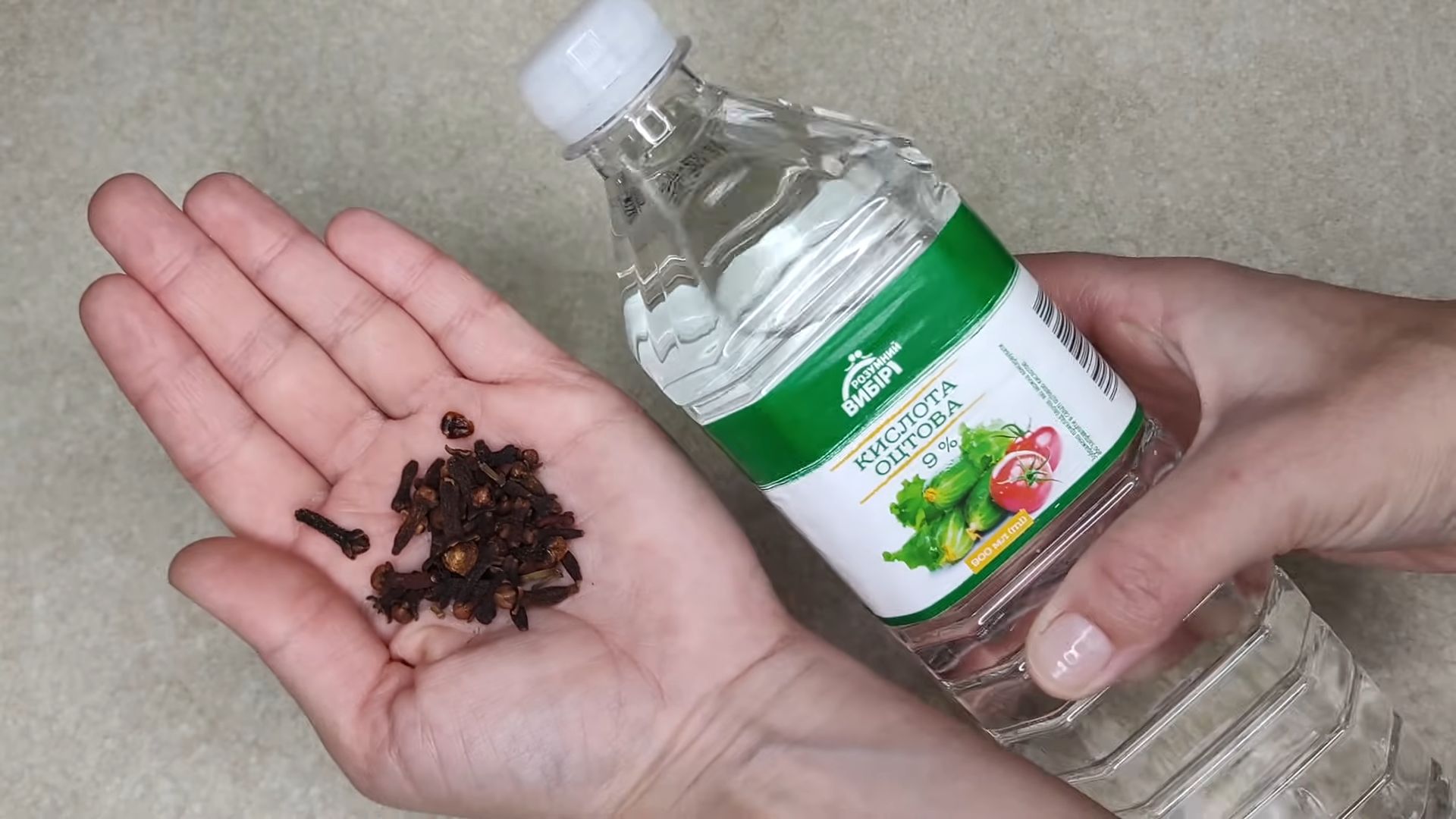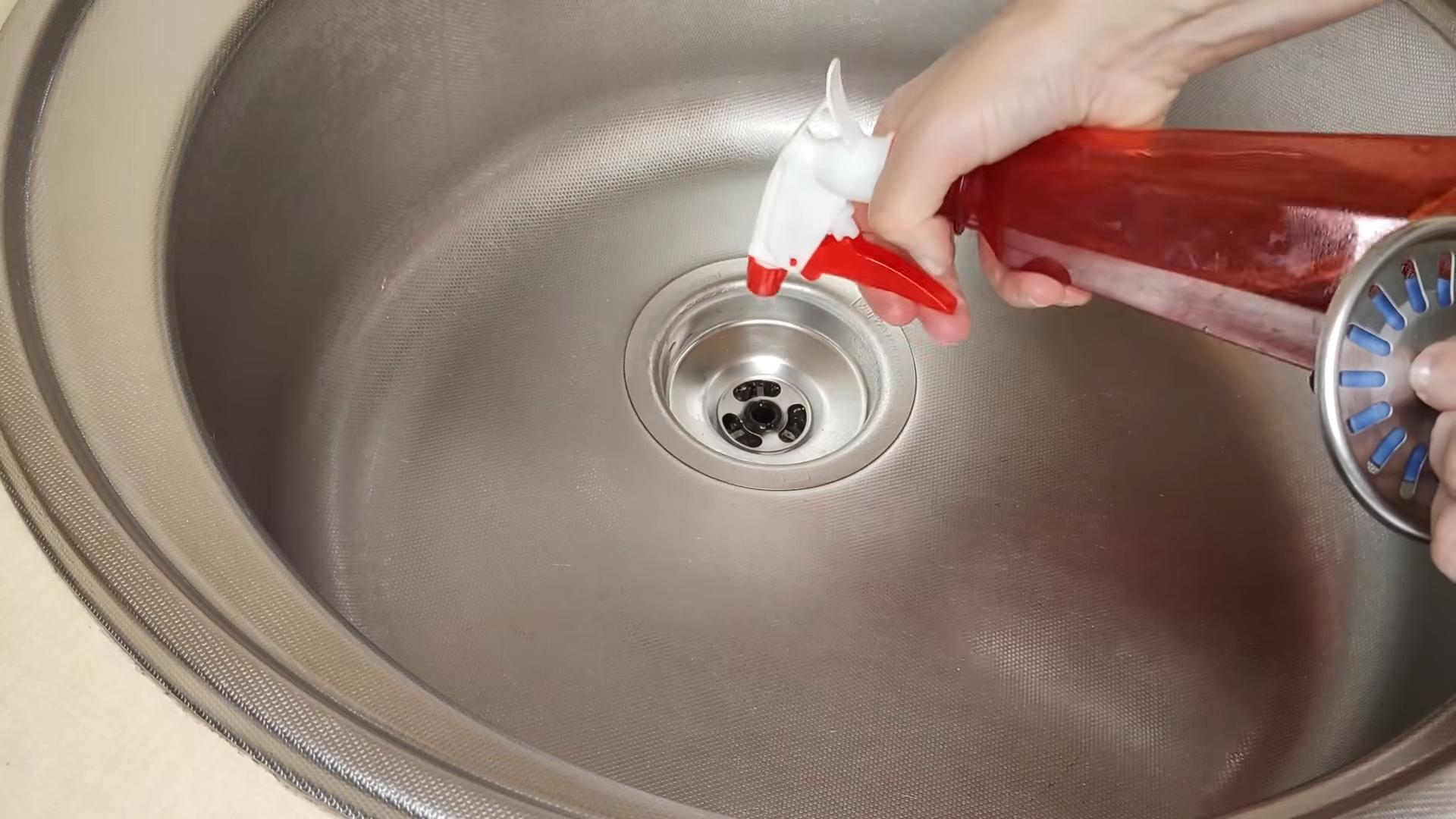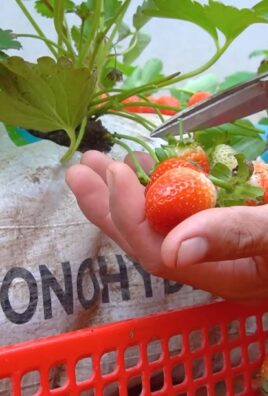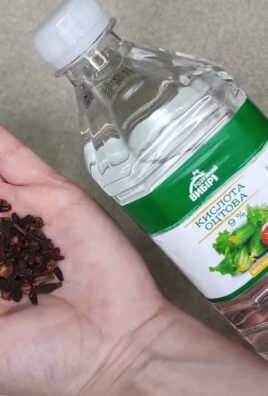Cloves and vinegar reaction – sounds like a science experiment, right? Well, it kind of is, but it’s one that can transform your home into a haven free from pesky insects! For centuries, cloves have been prized not only for their warm, spicy flavor in cooking but also for their potent medicinal and insect-repelling properties. Think back to medieval times when cloves were worth their weight in gold, traded along the Silk Road, and used to ward off disease. Now, we’re harnessing that ancient power with a simple DIY trick.
Let’s face it, nobody enjoys sharing their living space with unwanted creepy crawlies. Whether it’s fruit flies buzzing around your kitchen or ants marching across your countertops, dealing with insects can be a constant battle. Store-bought insecticides are often harsh and filled with chemicals that I, for one, prefer to avoid. That’s where the magic of cloves and vinegar reaction comes in! This natural solution offers a safe, effective, and surprisingly pleasant-smelling alternative to keep those unwelcome guests at bay. I’m excited to share this easy-to-follow guide that will help you create your own insect repellent using just two simple ingredients. Get ready to say goodbye to bugs and hello to a fresher, cleaner home!

DIY Natural Insect Repellent: Cloves and Vinegar Power!
Hey everyone! Tired of those pesky bugs buzzing around your home, especially during the warmer months? I know I am! And I’m not a fan of harsh chemicals. So, I’ve been experimenting with natural solutions, and I’ve stumbled upon a fantastic DIY insect repellent using just two ingredients: cloves and vinegar! It’s super easy to make, smells surprisingly pleasant (well, mostly!), and really does a great job at keeping those unwanted critters away. Let’s get started!
What You’ll Need
Before we dive in, let’s gather our supplies. This is a pretty straightforward project, so you probably already have most of these items at home.
* White Vinegar: This is the base of our repellent. The acidity helps to extract the essential oils from the cloves and acts as a deterrent itself. I usually buy a large bottle of plain white vinegar – it’s cheap and versatile!
* Whole Cloves: These are the stars of the show! Cloves contain eugenol, a natural compound known for its insect-repelling properties. Make sure you get whole cloves, not ground cloves.
* Glass Jar with Lid: A clean glass jar is essential for steeping the cloves in the vinegar. I prefer using a mason jar, but any glass jar with a tight-fitting lid will work. The lid is important to prevent evaporation and keep the mixture potent.
* Spray Bottle: This is how we’ll apply our repellent. Choose a spray bottle that produces a fine mist for even distribution.
* Optional: Essential Oils (Lavender, Eucalyptus, Peppermint): While the cloves and vinegar are effective on their own, you can add a few drops of essential oils to enhance the scent and boost the repellent power. Lavender, eucalyptus, and peppermint are all great choices.
* Optional: Funnel: A funnel can be helpful for transferring the clove-infused vinegar into the spray bottle without making a mess.
* Optional: Cheesecloth or Fine-Mesh Strainer: This is useful for filtering out any small clove particles before transferring the liquid to the spray bottle, ensuring it doesn’t clog the nozzle.
Step-by-Step Instructions: Creating Your Clove and Vinegar Insect Repellent
Okay, let’s get to the fun part! Here’s how to make your own natural insect repellent:
1. Prepare the Cloves:
* First, measure out about 1/2 cup of whole cloves. You don’t have to be super precise, but this is a good starting point.
* Lightly crush the cloves. This helps to release their essential oils more effectively. You can do this by placing them in a plastic bag and gently rolling over them with a rolling pin or by using a mortar and pestle. Don’t pulverize them – just crack them open a bit.
2. Combine Cloves and Vinegar:
* Pour the white vinegar into your clean glass jar. You’ll want enough vinegar to completely submerge the cloves. A good rule of thumb is to fill the jar about two-thirds full.
* Add the crushed cloves to the vinegar. Make sure they’re mostly submerged.
3. Steep the Mixture:
* This is the most important step! Seal the jar tightly with the lid.
* Place the jar in a cool, dark place. A pantry or cupboard works perfectly.
* Let the mixture steep for at least two weeks, but ideally four weeks. The longer it steeps, the more potent the repellent will be. I usually give mine a good shake every few days to help the cloves release their oils.
4. Strain the Mixture (Optional):
* After the steeping period, it’s time to strain the mixture. This step is optional, but I recommend it to prevent clogging your spray bottle.
* Place a cheesecloth or fine-mesh strainer over a bowl or measuring cup.
* Carefully pour the clove-infused vinegar through the strainer, catching any clove particles.
5. Add Essential Oils (Optional):
* If you’re using essential oils, now’s the time to add them. I usually add about 10-20 drops of my favorite insect-repelling essential oils per cup of clove-infused vinegar.
* Stir well to combine.
6. Transfer to Spray Bottle:
* Using a funnel (if you have one), carefully pour the strained clove and vinegar mixture into your spray bottle.
* Make sure to label the bottle clearly so you know what’s inside!
Using Your Homemade Insect Repellent
Now that you’ve created your natural insect repellent, let’s talk about how to use it effectively.
* Test Before Use: Before spraying liberally, test the repellent on a small, inconspicuous area of fabric or skin to ensure it doesn’t cause any discoloration or irritation.
* Spray Strategically: Focus on areas where insects are likely to enter your home, such as doorways, windowsills, and cracks in the walls. You can also spray it around your patio or deck.
* Reapply as Needed: The effectiveness of the repellent will diminish over time, so reapply it every few days, or more frequently if you notice increased insect activity.
* Avoid Direct Contact with Eyes and Skin: While this is a natural repellent, it’s still important to avoid direct contact with your eyes and skin. If you do get it in your eyes, rinse thoroughly with water.
* Use in Well-Ventilated Areas: The vinegar smell can be a bit strong, so make sure to use the repellent in well-ventilated areas.
* On Clothing: You can spray this on your clothing to help repel insects when you are outdoors. Again, test a small area first.
* Around Pets: While generally safe, avoid spraying directly on your pets. You can spray it around their bedding or in areas where they spend time, but keep it away from their faces.
* Storage: Store your clove and vinegar insect repellent in a cool, dark place away from direct sunlight. It should last for several months.
Why This Works: The Science Behind the Magic
So, what makes this simple concoction so effective? It all comes down to the properties of cloves and vinegar.
* Cloves and Eugenol: Cloves contain a high concentration of eugenol, a natural compound that acts as an insect repellent. Eugenol disrupts the nervous system of insects, causing them to avoid the treated area.
* Vinegar’s Acidity: The acidity of vinegar also contributes to its repellent properties. Many insects are sensitive to acidic environments and will avoid them.
* Synergistic Effect: The combination of cloves and vinegar creates a synergistic effect, making the repellent more potent than either ingredient alone. The vinegar helps to extract the essential oils from the cloves, while the cloves mask the strong vinegar smell to some extent.
Troubleshooting and Tips
* Strong Vinegar Smell: If you find the vinegar smell too overpowering, you can try adding more essential oils or diluting the mixture with water. However, diluting it may reduce its effectiveness.
* Clogged Spray Bottle: If your spray bottle gets clogged, try using a finer mesh strainer when straining the mixture. You can also try cleaning the spray bottle nozzle with a pin or needle.
* Repellent Not Working: If you’re not seeing results, make sure you’re using enough cloves and letting the mixture steep for a sufficient amount of time. You can also try adding more essential oils or increasing the concentration of vinegar.
* Experiment with Essential Oils: Don’t be afraid to experiment with different essential oils to find a blend that you like and that works well for repelling insects in your area. Citronella, tea tree, and rosemary are also good options.
* Make a Larger Batch: Once you’ve perfected your recipe, you can easily make a larger batch to have on hand for the entire season. Just adjust the ingredient quantities accordingly.
Safety Precautions
While this is a natural repellent, it’s still important to take some safety precautions:
* Keep Out of Reach of Children and Pets: Although the ingredients are natural, ingestion can still cause discomfort.
* Avoid Contact with Eyes: Vinegar can irritate the eyes. If contact occurs, rinse thoroughly with water.
* Test on Skin Before Use: Some people may be sensitive to cloves or vinegar. Test a small area of skin before applying liberally.
* Not a Substitute for Professional Pest Control: This DIY repellent is a great way to deter insects, but it’s not a substitute for professional pest control if you have a serious infestation.
I hope you found this DIY insect repellent tutorial helpful! I’ve been using this method for a while now, and it’s made a noticeable difference in keeping those pesky bugs at bay. Plus, it’s a much healthier and more environmentally friendly alternative to chemical-laden sprays. Give it a try, and let me know

Conclusion
So, there you have it! This simple yet surprisingly effective DIY trick, harnessing the power of cloves and vinegar, is a game-changer for anyone looking for a natural and cost-effective solution to [problem the cloves and vinegar solution addresses – e.g., repel insects, freshen the air, etc.]. Forget harsh chemicals and expensive store-bought products; this method offers a safe and pleasant alternative that you can easily whip up in your own kitchen.
The magic lies in the synergistic reaction between the cloves and vinegar. The acetic acid in the vinegar acts as a potent solvent, drawing out the aromatic oils from the cloves. These oils, rich in compounds like eugenol, are what give cloves their distinctive scent and, more importantly, their potent properties. This infusion creates a powerful solution that can be used in a multitude of ways.
But why is this DIY trick a must-try? Firstly, it’s incredibly economical. Cloves and vinegar are readily available and relatively inexpensive, making this a budget-friendly alternative to commercial products. Secondly, it’s environmentally friendly. By using natural ingredients, you’re reducing your exposure to harmful chemicals and minimizing your impact on the planet. Thirdly, it’s customizable. You can adjust the concentration of cloves and vinegar to suit your specific needs and preferences.
Ready to take it up a notch? Consider these variations:
* **Citrus Boost:** Add a few slices of orange or lemon peel to the mixture for an extra burst of freshness and enhanced effectiveness. The citrus oils complement the clove aroma beautifully.
* **Herbal Infusion:** Introduce other herbs like rosemary, lavender, or mint to the vinegar and clove mixture. This will not only add a unique fragrance but also potentially enhance the solution’s properties. For example, rosemary is known for its insect-repelling qualities.
* **Essential Oil Enhancement:** While the cloves themselves provide a strong scent, you can further boost the potency by adding a few drops of clove essential oil or other complementary essential oils like cinnamon or eucalyptus.
* **Spiced Vinegar:** For a warmer, more festive aroma, add a cinnamon stick or a star anise to the infusion. This is particularly appealing during the fall and winter months.
We strongly encourage you to give this DIY cloves and vinegar trick a try. It’s simple, effective, and a fantastic way to harness the power of natural ingredients. Experiment with the variations, find what works best for you, and enjoy the benefits of a chemical-free solution.
Don’t just take our word for it! We’re eager to hear about your experiences. Share your results, tips, and variations in the comments below. Let’s build a community of DIY enthusiasts who are passionate about natural and sustainable solutions. Your feedback will help others discover the wonders of this simple yet powerful cloves and vinegar concoction. Let us know how you use this powerful **cloves and vinegar** solution in your home!
Frequently Asked Questions
What exactly does this cloves and vinegar solution do?
The primary function of this solution depends on the concentration and application. Generally, it’s used as a natural repellent for insects like flies, mosquitoes, and ants. The strong scent of cloves, amplified by the vinegar, disrupts their sensory systems, making them avoid the treated area. It can also be used as a natural air freshener, deodorizer, and even a mild disinfectant. The acidity of the vinegar combined with the antimicrobial properties of cloves creates a solution that can help eliminate odors and kill some bacteria.
How long does the cloves and vinegar solution last?
The solution’s effectiveness typically lasts for several weeks, depending on the environment and how it’s used. If you’re using it as an insect repellent in a high-traffic area, you may need to refresh it more frequently. You’ll know it’s time to replace the solution when the scent of cloves diminishes significantly. Storing the solution in a cool, dark place can help prolong its shelf life. A good rule of thumb is to replace the solution every 2-4 weeks for optimal results.
Is this solution safe to use around pets and children?
While cloves and vinegar are generally considered safe, it’s important to exercise caution when using the solution around pets and children. The strong scent can be irritating to some animals, and the vinegar can be harmful if ingested in large quantities. Keep the solution out of reach of children and pets, and avoid spraying it directly on them. If you notice any signs of irritation or discomfort in your pets, discontinue use immediately. Always test a small, inconspicuous area first to ensure there are no adverse reactions.
Can I use any type of vinegar for this DIY trick?
White vinegar is the most commonly recommended type of vinegar for this solution due to its high acidity and neutral scent. However, you can also use apple cider vinegar, although it may impart a slightly different aroma. Avoid using flavored vinegars, as the added ingredients may interfere with the effectiveness of the solution. The key is to use a vinegar with a relatively high acetic acid content for optimal results.
How do I dispose of the cloves and vinegar solution when it’s no longer effective?
The cloves and vinegar solution can be safely disposed of down the drain. The vinegar is biodegradable and won’t harm your plumbing system. You can also compost the used cloves, as they are a natural organic material. Simply strain the cloves from the vinegar and add them to your compost bin.
Can I spray this solution directly on plants to deter pests?
While the cloves and vinegar solution can be effective in deterring some plant pests, it’s important to use it with caution. The acidity of the vinegar can damage some plants, especially those with delicate foliage. Always test the solution on a small area of the plant first to ensure there are no adverse reactions. Dilute the solution with water before spraying it on plants, and avoid spraying it during the hottest part of the day.
What is the best ratio of cloves to vinegar for this solution?
A good starting point is to use about 1/2 cup of whole cloves per 1 cup of vinegar. You can adjust the ratio to suit your preferences, but this is a generally effective concentration. If you want a stronger solution, you can increase the amount of cloves. Conversely, if you find the scent too overpowering, you can reduce the amount of cloves or dilute the solution with water.
Can I use ground cloves instead of whole cloves?
While you can use ground cloves, whole cloves are generally preferred for this solution. Whole cloves release their oils more slowly and consistently, resulting in a longer-lasting and more potent solution. Ground cloves may also leave a residue in the vinegar, making it more difficult to strain. If you do use ground cloves, be sure to strain the solution thoroughly before using it.
How long should I let the cloves and vinegar mixture sit before using it?
Ideally, you should let the cloves and vinegar mixture sit for at least 24 hours, or even longer, to allow the cloves to fully infuse the vinegar with their oils. The longer it sits, the more potent the solution will become. Some people even recommend letting it sit for a week or two for maximum effectiveness. Store the mixture in a sealed container in a cool, dark place during the infusion process.
Can I use this solution to clean surfaces?
Yes, the cloves and vinegar solution can be used as a natural cleaner for some surfaces. The vinegar has mild disinfectant properties, and the cloves add a pleasant scent. However, it’s important to test the solution on a small, inconspicuous area first to ensure it doesn’t damage the surface. Avoid using it on delicate surfaces like marble or granite, as the acidity of the vinegar can etch them. It’s best suited for cleaning surfaces like countertops, sinks, and floors.




Leave a Comment